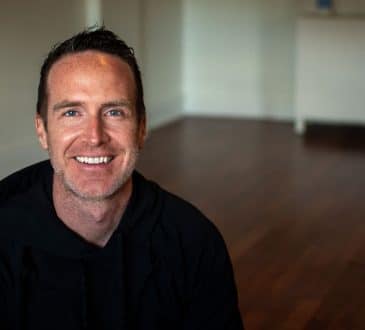Why Giving Your Knowledge Away For Free Will Make You Rich

How many times have you opened your email only to find countless spam emails that you have to delete and block? How many times have you opened your mailbox to find advertisements from pizza places and credit card companies, that you then have to throw away?
When you walk on the street and someone shoves a flyer in your hand, how often do you end up throwing it away?
For most people, the answer would be all the time, or something very close to that. The thing is, in today’s world, we get sales being pushed into our faces all the time.
It’s becoming more apparent that traditional sales methods like this simply no longer work. However, countless organisations are still employing such (futile) tactics. The most effective method of getting positive exposure of your business in a way How many times have you opened your email only to find countless spam emails that you have to delete and block?
How many times have you opened your mailbox to find advertisements from pizza places and credit card companies, that you then have to throw away?
When you walk on the street and someone shoves a flyer in your hand, how often do you end up throwing it away?
For most people, the answer would be all the time, or something very close to that. The thing is, in today’s world, we get sales being pushed into our faces all the time.
It’s becoming more apparent that traditional sales methods like this simply no longer work. However, countless organisations are still employing such (futile) tactics.
The most effective method of getting positive exposure of online courses.
Many business owners are initially nervous of this strategy, wondering what they will have left to ‘sell’ if they give away everything they know in free or cheap videos, courses and articles; but I’m here to tell you that although you should always have paid content too, giving your knowledge away for free is possibly the most profitable marketing method you can use today.
The Concept of Giving Freely
Let’s talk about a new concept. A different concept. I call this concept giving it all away, to gain it all, and its part of the very real new movement of ‘Edupreneurship’ – educating your market profitably.
I believe that instead of forcing your products or services on people, you should at a ‘bottom of funnel’ end, strategically give some (informative) stuff away for free.
What? Am I crazy? No, hear me out.
Look at all the self-made millionaires and authors who made it big by writing self-help books. The 7 Habits of Highly Effective People, by Stephen Covey. Rich Dad, Poor Dad by Robert Kiyosaki and The Purpose Driven Life, by Rick Warren.
Now look at all the famous chefs on television, with their own best-selling recipe books. Gordon Ramsay, Jamie Oliver, and so many more.
They publicly share their best recipes and their “secret” ingredients on television and in their books. They also demonstrate to you exactly HOW to make the best dish, yet many of us never follow it through.
None of these successful edupreneurs withhold their trade secrets.
They don’t hide their formula to success in a closet – They share it openly and to a global audience, yet they see more and more success come their way! Why is that?
Why Giving Freely Doesn’t Harm You
Now that we’ve got some concrete examples listed above, let’s take a closer look at why giving away all your knowledge for free doesn’t really harm you.
The thing is, when you hold back from your audience and your listeners, you’re actually holding back from yourself.
People know when you’re holding something back; it feels like a lure, a trap, a trick. It’s makes us mistrust you immediately.
When people experience your value and generosity, they like you, trust you, become a raving fan, give you testimonials and referrals without even having been a ‘customer’ of yours yet. And that often makes them become a paying customer – for life.
Even when you give knowledge away freely, most people don’t actually become a doppelgänger of yourself and steal all your success.
Firstly, the world is big enough that more than a few people can be rich and famous.
Just because you’ve given away your knowledge doesn’t mean that you’re going to lose out now, there are more than enough riches in the world for everyone to have a very juicy and large piece of the pie.
Secondly, if anything, giving away your knowledge only further cements yourself as an expert and specialist in your field.
The last time you watched a cooking show, whether it was Jamie Oliver, Gordon Ramsay, or even anyone else – Did you try to cook what you saw? And if you did, did you manage to pull it off flawlessly, exactly like how the chef did it?
Most people would, in the process, refer multiple times to the television show, or to an online source with instructions to guide them through the process.
Just because you share your knowledge does not mean that other people will be able to replicate what you do – They still need hand holding and guidance, they still need a mentor and a reference.
Here’s another example. Let’s say you don’t know how to fly a plane. Most people in the world don’t know how to fly a plane. Now, you have a friend who is a pilot. He’s very knowledgeable and skilled, and has been flying planes of all shapes and sizes for more than 10 years.
He takes you aside every week for a few hours, and teaches you how to fly a plane. He explains all the controls, and the science behind the dynamics of air propulsion and air currents.
Would you be able to fly a plane, after he had been teaching you all these concepts?
The answer is probably no, at least, not for more than a few minutes.
Sharing your knowledge doesn’t mean that people will steal it and usurp your position. Sharing your knowledge simply cements you as a specialist and expert in your field, and builds up your reputation. For those that it helps most, you also get new (paying) clients.
Inbound vs Outbound
Here’s the thing. In the marketing world, we have two terms to describe the flow of traffic, information and communication between seller and customer. There is outbound, and then there is inbound.
Outbound marketing is traditional marketing, where you get television commercials interrupting your episode of Game of Thrones or The Walking Dead; where you get flyers shoved into your hands when you’re trying to get to lunch.
Inbound marketing is when you are actively seeking out the vendor. When you go onto Facebook, and choose to visit a group or business page; when you engage, share their pictures, articles and posts – that is inbound marketing.
When someone shares their knowledge, and you actively seek after them, perhaps to ask them a question, or even to sign up for their latest book, workshop, online course or seminar, that is inbound marketing.
Inbound marketing is always far more effective than outbound marketing, for a simple reason – With inbound marketing, the customer is coming directly to the seller.
You don’t even need to sell your product, just give away knowledge and customers will come to you asking for more.
What’s more, now that they’ve had a taste of and experienced the quality of your knowledge and information, they will be more reassured paying for your products and services having already received so much value from you.
What Goes Around…
Comes around. Some people call it karma, others call it Reciprocity. However, leaving religion and cultural tradition aside, this saying of what goes around comes around is very apt when it comes to Edupreneurship. Your career and your job is not a one year contract that will be forgotten in time to come.
Your career will last for a good thirty to forty years.
Given that most people don’t change industries much, you’ll come to realise that the same faces will be seen in the same industry.
The big names will float around, and the names of the losers and crooks will too.
No one will forget the name of Jordan Belfort, the infamous Wolf of Wall Street. You might not know the names of the people behind it, but everyone who was closely associated with the collapse of Lehman Brothers will always have a slight taint on their name, at least within the finance sector.
By sharing your expertise and demonstrating the largeness of your generous and knowledgeable character, you are building a platform of reputation and stability for your name, for the future.
Today, you may share your knowledge with ten people. Next year, you may share it with one hundred.
Just look at the second degree and third degree connections, when your audience talks about you to their friends, that ten people can impact and spread your name to another ninety.
That one hundred people can spread the word to one thousand, and so it goes.
In Essence, Giving is Receiving
In summary – Today’s world is full of people WANTING and GETTING and looking out for self. It’s a dog eat dog world, they say. But what happens when someone comes along giving and sharing knowledge freely?
It’s not just a sign that you are confident in your product or service. After all, when you give away knowledge freely, the whole world is a reviewer and a potential customer.
By giving away knowledge freely, you are encouraging and building your own audience base that follows you willingly – These are the strongest and most effective captive audiences you can build.
Giving away your knowledge could be seen as a ‘loss’ when you could be charging for it – but charging for it doesn’t make you ‘exceptional’, it just makes you another business.
Although having paid content is a very important part of your business, it’s worth giving away some stuff for free at the bottom of your funnel, in order to pursue the larger, greater payoff and reward. Shifting from this short-term to long-term vision in your marketing is an investment you’ll thank yourself for.
Written by Sarah Cordiner.
Have you read?
3 ways to innovate despite any pending recession by Francesco Fazio.
Investing in Sustainability – Violations of the Sole Interest Rule or Good Business by Dr. William Putsis.
SMAC QR Code to Tap into New Business Opportunities by Dr. Rudy Cardona.
The 3 stages of onboarding that every manager needs to know by Brad Giles.
3 Strategies to Build Your Company’s Resistance to Economic Upheaval by Terry Howerton.
Bring the best of the CEOWORLD magazine's global journalism to audiences in the United States and around the world. - Add CEOWORLD magazine to your Google News feed.
Follow CEOWORLD magazine headlines on: Google News, LinkedIn, Twitter, and Facebook.
Copyright 2025 The CEOWORLD magazine. All rights reserved. This material (and any extract from it) must not be copied, redistributed or placed on any website, without CEOWORLD magazine' prior written consent. For media queries, please contact: info@ceoworld.biz











